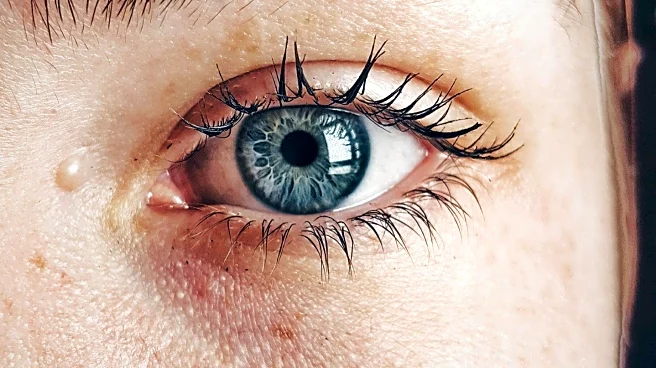What's Happening?
Ray George, a 70-year-old business owner from Bellingham, has been diagnosed with advanced pancreatic cancer. Despite the challenging prognosis, George has adopted a positive outlook, viewing his condition
as a blessing and focusing on living each day in the present. He has chosen Virginia Mason Franciscan Health for his treatment, drawn by their innovative approach and the expertise of Dr. Vincent Picozzi, known for achieving survival rates double the national average. George's response to his diagnosis includes spreading joy among fellow patients and staff at the Floyd & Delores Jones Cancer Institute by distributing Sasquatch figurines, a gesture aimed at lifting spirits and creating smiles.
Why It's Important?
Pancreatic cancer is notoriously difficult to detect early, often leading to advanced-stage diagnoses. It is the third-leading cause of cancer-related deaths in the U.S., with a low survival rate. George's approach highlights the importance of mental and emotional resilience in facing serious health challenges. His actions not only provide comfort to those around him but also underscore the role of community and support in healthcare settings. By choosing a facility known for its innovative treatment methods, George sets an example of proactive healthcare decision-making, potentially influencing others facing similar diagnoses.
What's Next?
George will continue his treatment at Virginia Mason Franciscan Health, where he benefits from patient support groups and the expertise of Dr. Picozzi. His ongoing efforts to uplift others at the cancer institute may inspire similar initiatives, fostering a supportive environment for patients and healthcare providers. As George navigates his treatment, his story could encourage broader discussions on patient-centered care and the integration of emotional well-being in medical treatment plans.
Beyond the Headlines
George's story sheds light on the cultural and emotional dimensions of cancer treatment. His use of humor and novelty items to connect with others reflects a broader trend of incorporating personal touches into healthcare experiences. This approach may prompt healthcare providers to consider more holistic treatment plans that address both physical and emotional needs, potentially leading to improved patient outcomes and satisfaction.








